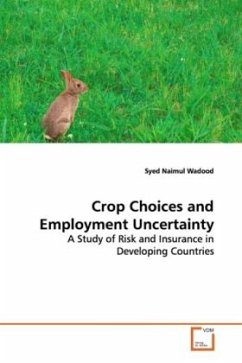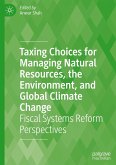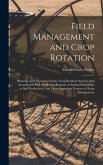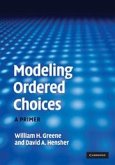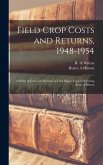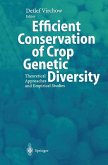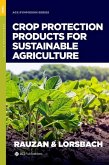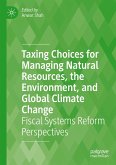This book examines the link between agricultural
production decisions, particularly ex ante crop
choice decisions, and off-farm labor income
opportunities available to the cultivator households
in a developing country. The cultivator households
often use off-farm labor supply as an insurance
against shocks in crop income. Yet employment is
uncertain in the off-farm labor market. This book
hypothesizes that, given limited opportunities for ex
post consumption smoothing, employment uncertainty in
the labor market influences risk averse farmers ex
ante crop choice decisions and farmers would opt for
more conservative crop choices in case they expect
unfavorable supply opportunities in the off-farm
labor market at a later period. We develop an
agricultural household model based on a two period
stochastic dynamic programming framework. This shows
that farmer expectations of a lower depth of the
labor market or a lower wage rate in that market in
the next period would lead them to allocate more land
to crops with safer returns. A panel data set from
the ICRISAT survey of the semi-arid areas of India is
used for estimation. As a background, we discuss the
survey villages in detail.
production decisions, particularly ex ante crop
choice decisions, and off-farm labor income
opportunities available to the cultivator households
in a developing country. The cultivator households
often use off-farm labor supply as an insurance
against shocks in crop income. Yet employment is
uncertain in the off-farm labor market. This book
hypothesizes that, given limited opportunities for ex
post consumption smoothing, employment uncertainty in
the labor market influences risk averse farmers ex
ante crop choice decisions and farmers would opt for
more conservative crop choices in case they expect
unfavorable supply opportunities in the off-farm
labor market at a later period. We develop an
agricultural household model based on a two period
stochastic dynamic programming framework. This shows
that farmer expectations of a lower depth of the
labor market or a lower wage rate in that market in
the next period would lead them to allocate more land
to crops with safer returns. A panel data set from
the ICRISAT survey of the semi-arid areas of India is
used for estimation. As a background, we discuss the
survey villages in detail.

